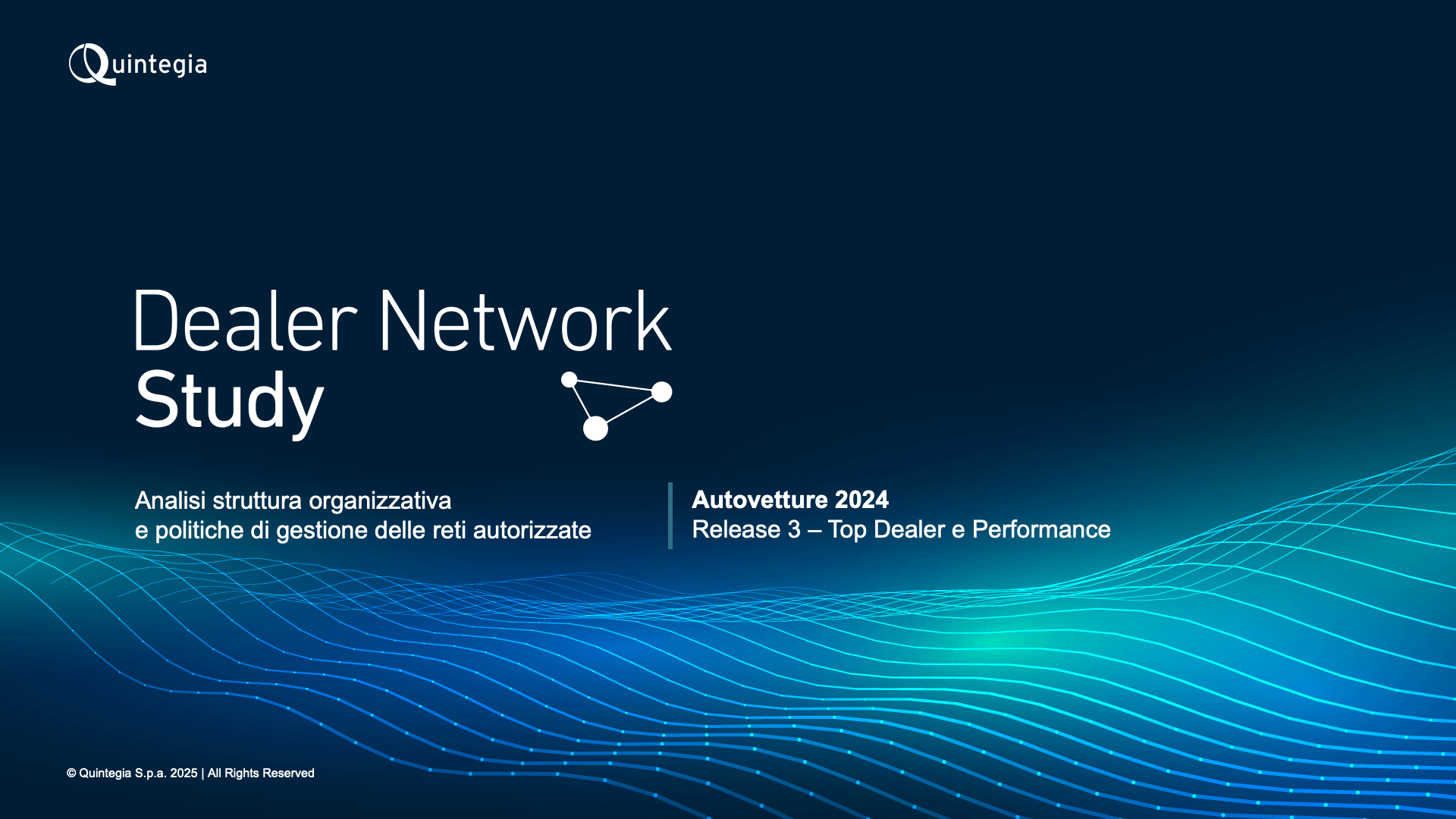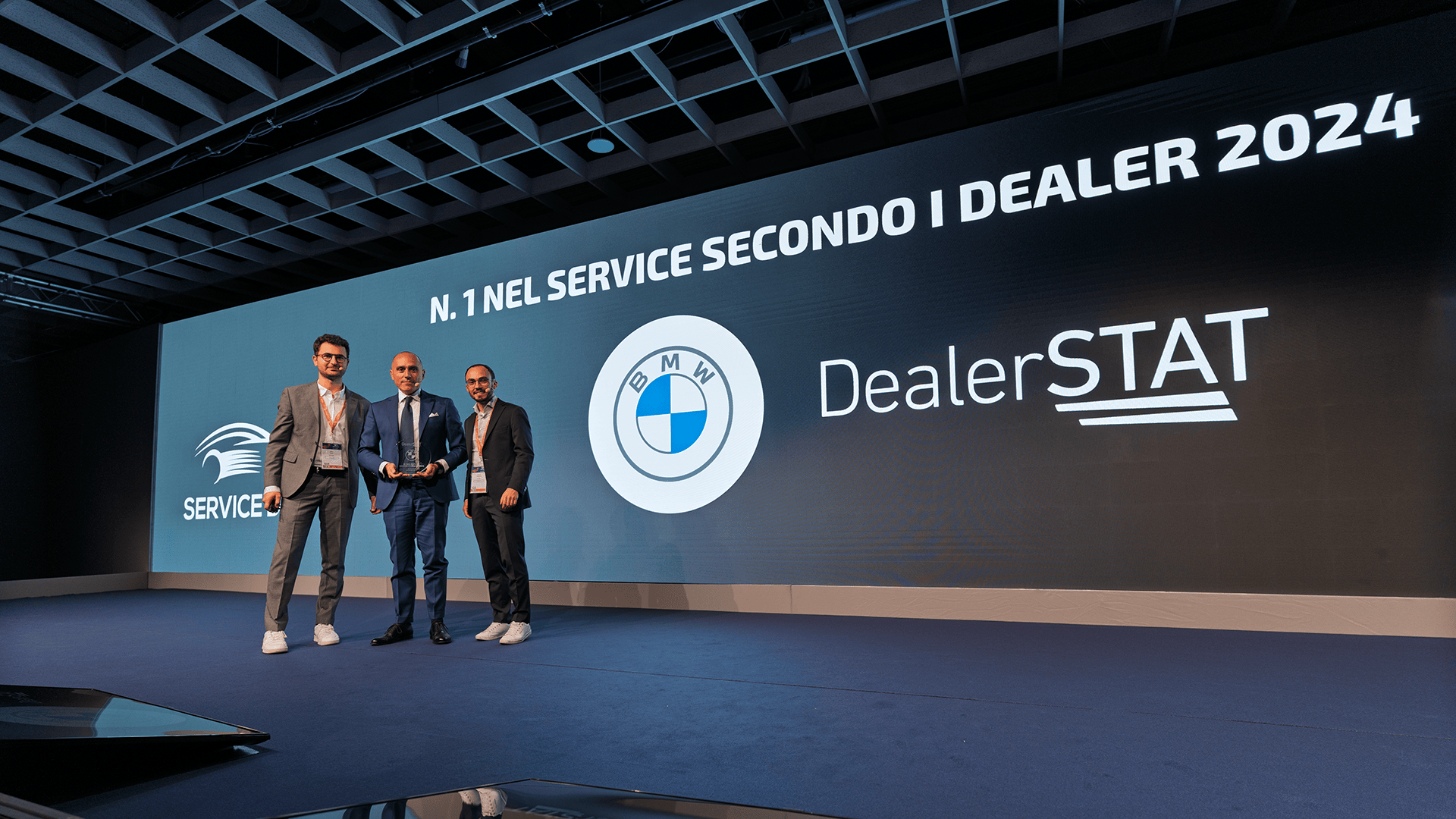52 percent of customers would change garages if they had greater guarantees of reliability and quality of service, and 63 percent would be willing to share car and usage data for additional services and benefits. These are some of the findings from the Service Customer Study 2024, the annual study conducted by Quintegia, and presented at Service Day 2024, which examines automotive consumer preferences regarding after-sales service.
The study highlights important signs of a changing industry, which increasingly needs to adapt to end-customer needs and new lifestyles: from the increasing focus on digital to caring about the quality and reliability of the service provided.
In fact, the study offers a comprehensive scenario from the perspective of customers of authorized and independent garages, for both premium and generalist brands, examining four areas: choice of repairer and services; information sources and data sharing; how to book interventions; and choice of operator for tire changes.
REPAIRER CHOICE AND SERVICES: QUALITY AND PRICE
One of the most significant aspects appears to be the importance of providing guarantees of reliability and quality in interventions. In fact, 52 percent of customers would be willing to change their usual repair shop for one that can ensure a higher level of reliability and quality.
Price is another important factor in customer loyalty to their repairer: a 10 percent price increase in premium brand garages would result in a 27 percent loss of customers, while for generalist garages the loss would be 25 percent. On the other hand, if an equivalent service were offered by another repair shop at a lower price, there would be a 19% and 22% drop, respectively.
The surveyed sample was sensitive about the mode of booking. In this regard, the manufacturer’s app (where present) is still little known. Among premium brand owners, 60 percent are aware of its existence and, among them, 58 percent use it; while among generalist brand owners, awareness is 42 percent and use, among those who are aware of it, rises to 51 percent.
INFORMATION SOURCES, DATA SHARING AND WEB CONSULTATION
It appears to be of customer interest to share data in order to have services and benefits. As many as 63% of the sample would consider sharing certain elements. This percentage considers confidentiality as a necessary element, and has as its main purpose the possibility of remote diagnosis in case of malfunctions or failures. So it takes into consideration a real benefit for the customer.
The study shows that 1 in 3 people before taking their car to the workshop normally consult websites or social channels. Thirty-five percent of generalist customers say they do this always or often, compared to 30 percent of premium brand customers.
INTERVENTION BOOKING: DISCREPANCY BETWEEN USED AND PREFERRED BOOKING MODE
Despite the fact that the digital world is advancing faster and faster and time savings can be an important discriminator in consumer choice, it emerges that the most used mode of booking for authorized workshops is telephone (73%). First mode also for independent workshops (56 percent) followed by a significant percentage of in-person reservations for these customers (35 percent).
But if you combine the preferred and used mode of booking, you find that just over 1 in 2 people can declare themselves completely satisfied.
Comparing what emerged from the preferred booking methods, the telephone remains the first choice but with a lower importance (50 percent for authorized and 43 percent for independents) in favor of an increase in online booking methods, including the manufacturer app, (11 percent for authorized and 14 percent for premium customers), the workshop website (12 percent for authorized and 11 percent for independents), and instant messaging, which reaches 18 percent in independent workshops.
These data translate into an opportunity related to proactively contacting the garage to report service needs. Premium customers were 45 percent contacted by the dealer or the manufacturer compared to 27 percent of generalist customers. The opportunity also involves the type of workshop, with authorized (37% customers contacted) and independent (23%).
WHO DO PEOPLE BUY TIRES FROM?
Trust turns out to be an important driver for tire purchases: in fact, with 40 percent it turns out to be the most influential element. In particular, it turns out that for premium brands and authorized garages it is not surpassed even by the price variable, which is the case for those who rely on independent garages (39 percent).
In relation to where to change tires, customers of authorized garages are more likely to turn to dealerships (29%) than customers of independent garages (16%). The latter prefer garages or tire shops for tire changes (80%).
Lower than last year, however, interest in all-around service points remains strong, particularly for independent workshop customers (61%).
It should be noted that online purchasing has not yet taken hold in this type of purchase, in fact as many as 93 percent of the sample choose a traditional form of purchasing.
SERVICE CUSTOMER STUDY
The Service Customer Study is the annual Study conducted by Quintegia, with the support of TUNAP Italy, which examines automotive consumer preferences regarding service.
The sample surveyed consists of 3,872 people between the ages of 18 and 70, customers of garages who have performed at least one maintenance or repair job on their car in the past 18 months.
Download the free excerpt or purchase the full study at this LINK








